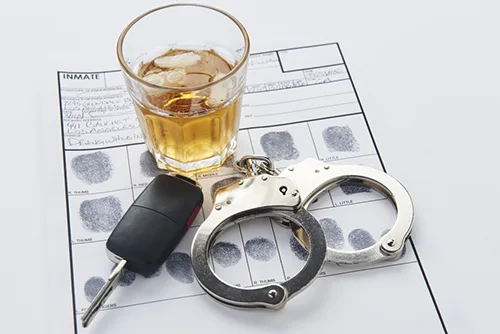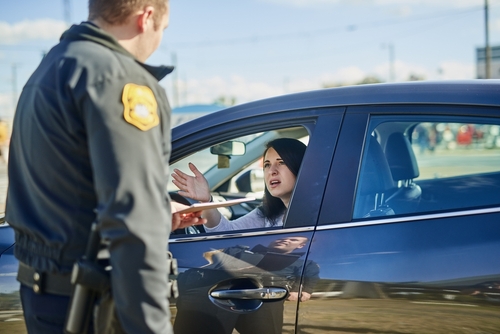If you have been pulled over on suspicion of drunk driving in Greenville, South Carolina, you may be asked to perform field sobriety tests. These tests are used by law enforcement to determine whether a driver is impaired, but they are not always accurate. Many factors can influence the results of a field sobriety test, leading to wrongful arrests and unfair DUI charges.
At DUI Lawyer Greenville, we understand the flaws in these tests and how to challenge them in court. If you or a loved one has been accused of DUI, understanding field sobriety tests and your rights can make a significant difference in your case.
If you’re accused of drunk driving, don’t wait to contact our Greenville DUI lawyers for a free case review.
What Is a Field Sobriety Test?
Field sobriety tests (FSTs) are a series of physical and cognitive exercises that police officers use to assess whether a driver is impaired by alcohol or drugs. These tests are typically administered during a traffic stop when an officer suspects a driver may be under the influence. The goal of a field sobriety test is to observe signs of intoxication, such as poor balance, lack of coordination, and difficulty following instructions.
While these tests are designed to measure impairment, they are highly subjective. Factors such as nervousness, medical conditions, uneven road surfaces, and even poor footwear can cause a sober person to fail. Because of these inconsistencies, many people facing DUI charges based on field sobriety tests have valid grounds to challenge their results.
Standardized Field Sobriety Tests
The National Highway Traffic Safety Administration (NHTSA) has approved three standardized field sobriety tests (SFSTs) that law enforcement officers commonly use in DUI investigations.
The Horizontal Gaze Nystagmus (HGN) Test
The Horizontal Gaze Nystagmus (HGN) test is one of the most frequently used field sobriety tests. Nystagmus refers to the involuntary jerking of the eyes, which can become more pronounced when a person is intoxicated. During this test, an officer will ask a driver to follow a small object, such as a pen or flashlight, with their eyes. The officer observes the smoothness of the eye movement and checks for signs of nystagmus at various angles.
Other factors besides alcohol can cause nystagmus, such as fatigue, medical conditions, and even certain medications. If an officer does not administer the test correctly, the results may be unreliable.
The Walk-and-Turn Test
The Walk-and-Turn test is a divided-attention test that evaluates a person’s ability to follow instructions while performing a physical task. The officer instructs the driver to take nine heel-to-toe steps in a straight line, turn on one foot, and return the same way. The officer looks for signs of impairment such as loss of balance, failure to follow directions, starting too soon, or using arms to steady oneself.
Even a sober person may fail this test due to poor road conditions, uneven pavement, medical conditions affecting balance, inappropriate footwear, or nervousness.
The One-Leg Stand Test
The One-Leg Stand test is another divided-attention test. In this test, an officer instructs the driver to stand on one leg while raising the other about six inches off the ground. The driver must hold this position for about 30 seconds while counting out loud. Signs of intoxication include swaying, hopping, putting your foot down, or using your arms for balance.
As with the Walk-and-Turn test, many people struggle even when they are sober. Individuals with medical conditions, older adults, and those with poor balance may not be able to complete the test successfully.
Can You Refuse a Field Sobriety Test in South Carolina?
Yes, you can refuse a field sobriety test in South Carolina. While your license will be automatically suspended if you refuse a breathalyzer test under South Carolina’s implied consent law, you are not legally required to perform field sobriety tests if asked.
Refusing to take field sobriety tests does not mean you’re in the clear. The police may still arrest you if they have probable cause to believe you’re impaired based on other observations, such as the smell of alcohol, slurred speech, or erratic driving. However, without field sobriety test results, proving your driving was impaired may be more difficult for the prosecution.
Challenging Field Sobriety Test Results
Field sobriety tests are not foolproof. Many factors can affect a person’s performance on these tests, including physical conditions, nervousness, environmental factors, and even the officer’s subjective interpretation of the results. Despite these limitations, field sobriety tests are often used as evidence in DUI cases.
If you were arrested for drunk driving based on a field sobriety test, a skilled DUI lawyer can challenge the results in several ways.
Improper Testing Procedures
Field sobriety tests must be administered according to strict NHTSA guidelines. Your Greenville DUI lawyer can challenge the results if an officer does not follow these procedures correctly.
Highlighting External Factors
Poor lighting, uneven pavement, bad weather, and other environmental conditions can impact performance on a field sobriety test. A lawyer can argue that these factors contributed to an unfair result.
Medical and Physical Conditions
Many medical conditions, such as inner ear disorders, neurological conditions, and even anxiety, can affect a person’s balance and coordination. A lawyer can present medical evidence showing that the test results were misleading.
Officer Bias
Field sobriety tests rely on an officer’s judgment, which can be influenced by bias or lack of experience. An attorney can point out inconsistencies in the officer’s observations and testimony.
Field sobriety tests are not always reliable indicators of drunk driving, and you have the right to refuse these tests in South Carolina. At DUI Lawyer Greenville, we know how to scrutinize these tests and expose their weaknesses to fight for our clients’ rights.
Contact Our Greenville DUI Lawyers for a Free Case Review
At DUI Lawyer Greenville, we have extensive experience defending clients against DUI charges and challenging field sobriety test results. Our team understands the intricacies of DUI law in South Carolina and knows how to build a strong defense strategy tailored to your specific case.
Beyond challenging field sobriety test results, a skilled DUI lawyer in Greenville can help in numerous other ways. We can:
- Analyze all aspects of your arrest to ensure your rights were not violated
- Challenge the validity of breathalyzer or blood test results
- Negotiate with prosecutors for reduced charges or penalties
- Represent you in administrative hearings to protect your driving privileges
- Prepare and present a strong defense if your case goes to trial
Remember, a DUI charge is not the same as a conviction. With the right legal representation, it’s often possible to have charges reduced or even dismissed entirely.
If you’ve been charged with a DUI in Greenville, South Carolina, don’t wait to seek legal help. Contact DUI Lawyer Greenville today for a free case review. Our experienced team is ready to fight for your rights and help you navigate this challenging situation.








